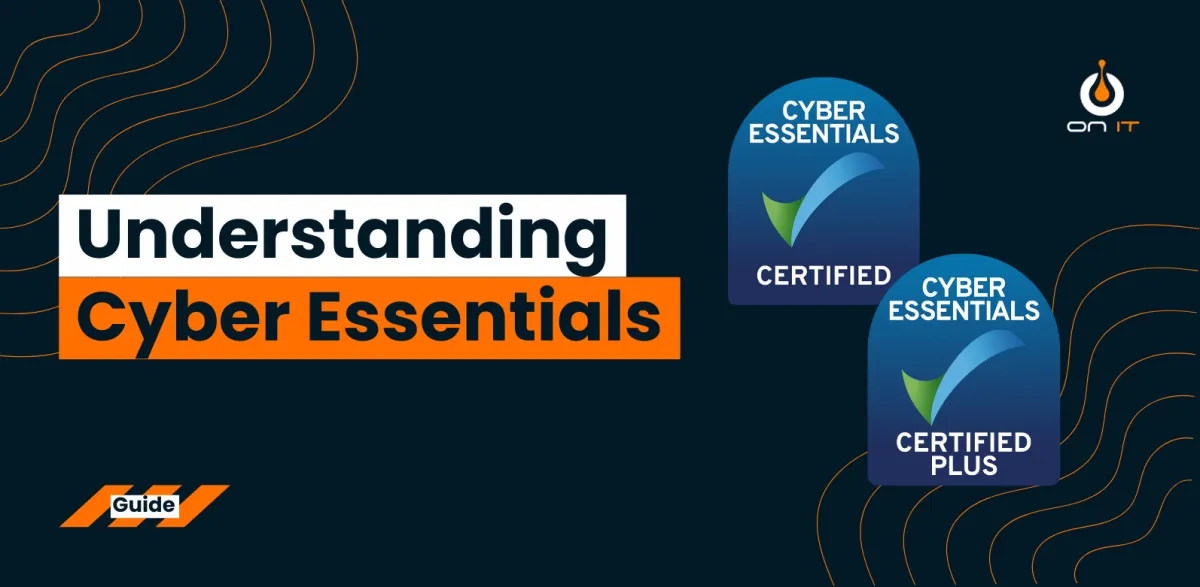
Understanding Cyber Essentials: A Comprehensive Guide for Businesses
In today’s digital landscape, cybersecurity is not just a necessity—it's a crucial component of any business strategy. With cyber threats becoming increasingly sophisticated, organizations of all sizes must take proactive measures to protect their data and systems. One effective way to strengthen your cybersecurity posture is through Cyber Essentials, a UK government-backed certification scheme designed to help businesses guard against the most common cyber threats.
This blog post will serve as a comprehensive resource on Cyber Essentials, explaining what it is, why it’s important, and how your business can benefit from becoming certified.
What is Cyber Essentials?
Cyber Essentials is a certification scheme developed by the UK government and the National Cyber Security Centre (NCSC) to help businesses protect themselves from the most prevalent forms of cyber-attacks. It provides a clear set of basic security controls that organizations can implement to safeguard their data and IT infrastructure.
The scheme has two levels of certification:
Cyber Essentials: This is the basic level of certification, focusing on five essential security controls that can protect against the most common cyber threats. It's a self-assessment process that includes an external vulnerability scan.
Cyber Essentials Plus: This is a more advanced certification that includes everything in the basic level but also requires a hands-on technical verification by an independent assessor.
Why is Cyber Essentials Important?
1. Protection Against Common Threats
Cyber Essentials focuses on the most common cyber threats such as phishing attacks, malware, and ransomware. By implementing the recommended controls, businesses can significantly reduce their risk of falling victim to these attacks.
2. Enhancing Business Reputation
Achieving Cyber Essentials certification signals to your customers, partners, and stakeholders that you take cybersecurity seriously. This can enhance your reputation and build trust, especially when dealing with sensitive data or working in industries where security is paramount.
3. Compliance and Contractual Requirements
For some industries and government contracts, having Cyber Essentials certification is a mandatory requirement. By obtaining the certification, your business can not only comply with legal and contractual obligations but also gain a competitive edge in the marketplace.
4. Financial Incentives
Some insurance companies offer lower premiums to businesses that are Cyber Essentials certified. This is because the certification reduces the likelihood of a security breach, making your business a lower risk to insure.
The Five Key Controls of Cyber Essentials
The Cyber Essentials scheme is built around five key security controls that businesses should implement:
1. Firewalls and Internet Gateways
A firewall acts as a barrier between your internal network and the outside world. It monitors incoming and outgoing traffic and blocks any unauthorized access. Configuring your firewall correctly is essential to prevent cybercriminals from gaining access to your systems.
2. Secure Configuration
Ensuring that your devices and software are configured securely is vital. This means removing or disabling unnecessary functions, changing default passwords, and applying security patches regularly.
3. Access Control
Limiting access to your data and systems to only those who need it reduces the risk of unauthorized access. Implementing strong password policies and using multi-factor authentication (MFA) are critical components of this control.
4. Malware Protection
Malware can cause significant damage to your systems and data. By using antivirus software, anti-malware tools, and keeping them up-to-date, you can prevent malware from infiltrating your network.
5. Patch Management
Keeping your software and systems up-to-date with the latest security patches is essential to closing vulnerabilities that cybercriminals might exploit. Regular updates ensure that your systems are protected against known threats.
The Certification Process
Obtaining Cyber Essentials certification involves several steps:
1. Self-Assessment Questionnaire
For the basic Cyber Essentials certification, you will need to complete a self-assessment questionnaire. This assesses your current security measures against the five key controls.
2. Verification and Certification
Once the self-assessment and vulnerability scan are complete, your submission will be reviewed by a certifying body. If you meet the requirements, you will be awarded the Cyber Essentials certification.
For Cyber Essentials Plus, an independent assessor will conduct a more thorough hands-on technical audit to verify that your systems are secure.
Benefits of Cyber Essentials Certification
Achieving Cyber Essentials certification brings several benefits:
Increased Protection: By implementing the recommended security controls, your business is better protected against common cyber threats.
Customer Trust: The certification demonstrates your commitment to cybersecurity, which can enhance customer trust and confidence in your business.
Competitive Advantage: In industries where cybersecurity is critical, being Cyber Essentials certified can give you an edge over competitors who are not certified.
Compliance: For businesses working with government contracts or in regulated industries, Cyber Essentials certification may be a requirement.
How to Get Started with Cyber Essentials
If you’re considering Cyber Essentials certification for your business, here are a few steps to get started:
Understand the Requirements: Familiarize yourself with the five key controls and assess your current cybersecurity measures against them.
Choose a Certification Body: Select an accredited certification body that will guide you through the certification process.
Implement the Controls: Work with your IT team or an external consultant to implement the necessary security controls.
Complete the Self-Assessment: Fill out the self-assessment questionnaire and submit it to your chosen certification body.
Get Certified: Once you pass the assessment and scan, you’ll receive your Cyber Essentials certification.
Conclusion
Cyber Essentials is an invaluable tool for businesses looking to improve their cybersecurity posture. By obtaining this certification, you not only protect your business from common cyber threats but also enhance your reputation, meet compliance requirements, and gain a competitive edge. Whether you’re a small business or a large enterprise, Cyber Essentials is a step toward a more secure future.
If you’re ready to strengthen your cybersecurity and explore the benefits of Cyber Essentials, contact us today to learn more about how we can help you achieve certification.
